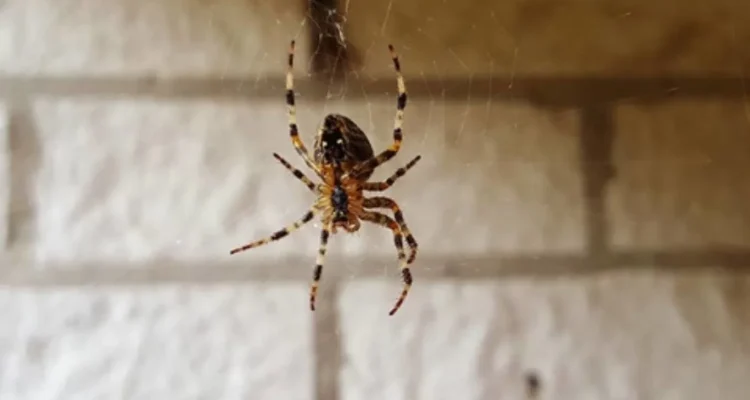Introduction
Understanding the Spider Issue in Basements
Dealing with spiders in your basement can be unsettling. Basements provide an ideal environment for spiders due to their darkness, moisture, and often undisturbed nature. Whether you’re dealing with common house spiders or more concerning species like cellar spiders, taking proactive steps to manage and eliminate them is essential for comfort and peace of mind.

Assessing the Spider Problem
Identifying Spider Species
Before implementing any removal strategies, it’s crucial to identify the types of spiders inhabiting your basement. Common species include cellar spiders (also known as daddy long-legs), wolf spiders, and brown recluse spiders. Each species may require different approaches for effective control.
Mapping Spider Hotspots in Your Basement
Take note of where spiders are most commonly found in your basement. They typically prefer dark corners, behind storage boxes, near windows, and in crawl spaces. Understanding these hotspots will help you target your efforts more effectively.
Prevention Strategies
Seal Entry Points
Spiders enter basements through cracks, gaps around pipes, vents, and windows. Seal these entry points using caulking or weather stripping to prevent them from entering in the first place.
Caulking and Weather Stripping
Inspect your basement thoroughly for any gaps or cracks in walls, floors, and around utility entry points. Use a high-quality silicone or latex caulk to seal these openings. Additionally, apply weather stripping around doors and windows to create a tight seal.
Installing Door Sweeps
Install door sweeps on exterior doors leading to the basement to prevent spiders (and other pests) from squeezing through gaps at the bottom of the door.
Reduce Clutter
Spiders thrive in cluttered environments where they can easily hide and build webs. Reduce clutter in your basement by organizing storage areas and getting rid of items you no longer need.
Organizing Storage Areas
Store items in plastic bins with tightly sealed lids rather than cardboard boxes. Keep storage areas well-organized and away from walls to minimize hiding spots for spiders.
Decluttering Unused Items
Dispose of or donate items that are no longer used. Less clutter means fewer places for spiders to hide and breed.
Natural Repellents and Deterrents
Essential Oils
Certain essential oils are known to repel spiders due to their strong scents that spiders find unpleasant.
Peppermint Oil Spray
Mix 10-15 drops of peppermint essential oil with water in a spray bottle. Spray this mixture around baseboards, windowsills, and other entry points to deter spiders. Refresh the spray weekly.
Citrus Oil Solution
Create a citrus oil solution using extracts from lemon, orange, or lime peels. Soak cotton balls in the solution and place them strategically in corners and near potential entry points for spiders.
Vinegar Spray
Vinegar is another effective natural spider repellent and cleaner.
Creating a Vinegar Solution
Mix equal parts white vinegar and water in a spray bottle. Use this solution to wipe down surfaces and spray in areas where spiders are likely to frequent.
Application Techniques
Apply the vinegar solution around windows, doors, and along baseboards. Reapply weekly or after cleaning to maintain its effectiveness.
Using Spider Traps
Sticky Traps
Sticky traps are an effective way to capture spiders without using chemicals.
Placement Tips
Place sticky traps along walls, corners, and other areas where spiders are seen. Check traps regularly and replace them when they become full or lose their stickiness.
Monitoring and Replacement
Monitor traps frequently to gauge spider activity in your basement. Replace traps as needed to maintain their effectiveness.
DIY Trap Solutions
You can also create homemade traps using common household items.
Jar Traps
Place a few inches of soapy water in the bottom of a glass jar. Place the jar in areas where spiders are prevalent. Spiders will climb into the jar and drown.
Cardboard Traps
Place strips of cardboard in areas where spiders are seen. Spiders will use the cardboard as a hiding place, making it easier to capture and remove them.
Chemical Solutions
Insecticide Options
For severe infestations or persistent spider problems, consider using insecticides.
Choosing the Right Insecticide
Select an insecticide labeled specifically for spiders. Follow the manufacturer’s instructions carefully regarding application and safety precautions.
Safety Precautions
Wear protective clothing, gloves, and a mask when applying insecticides. Ensure proper ventilation in the basement during and after application.
Hiring Professional Help
If DIY methods aren’t effective or if you’re dealing with a large infestation, consider hiring a professional pest control service.
Benefits of Professional Pest Control
Professional exterminators have the expertise and equipment to effectively eliminate spiders and prevent future infestations. They can also provide ongoing maintenance to ensure long-term relief.
When to Consider Professional Assistance
Seek professional help if you have a large number of spiders in your basement, if you’re unsure of the spider species present, or if DIY methods have been ineffective.
Maintenance and Long-Term Solutions
Regular Cleaning Practices
Maintaining a clean and clutter-free basement is key to preventing spider infestations.
Vacuuming Techniques
Regularly vacuum floors, corners, and baseboards to remove spiders, webs, and egg sacs. Dispose of the vacuum bag or clean the canister promptly after use.
Dusting and Sweeping
Dust and sweep surfaces frequently to remove dust, debris, and potential spider food sources like insects.
Monitoring and Inspections
Perform regular inspections of your basement to catch spider problems early.
Periodic Basement Inspections
Inspect your basement for signs of spider webs, egg sacs, and live spiders. Address any new cracks or entry points promptly.
Early Detection Methods
Address any new cracks or entry points promptly. Detecting and addressing spider activity early can prevent larger infestations.
FAQs About Getting Rid of Spiders in Basements
1. Are spiders in basements dangerous?
Spiders found in basements are generally not aggressive, but some species like brown recluse spiders can pose health risks with their venomous bites. It’s best to identify the species and take appropriate measures.
2. Will cleaning my basement regularly help keep spiders away?
Yes, maintaining a clean and clutter-free environment reduces hiding spots and potential food sources for spiders, making your basement less attractive to them.
3. How can I prevent spiders from entering my basement?
Seal cracks, gaps around doors and windows, and install door sweeps to minimize entry points. Regularly inspect and maintain these seals.
4. Are natural repellents effective against spiders?
Natural repellents like peppermint oil, vinegar, and citrus oils can be effective in deterring spiders from entering your basement. However, their effectiveness may vary.
5. When should I consider professional pest control for spiders?
Consider professional pest control if you have a large infestation, are unsure about handling chemicals safely, or if DIY methods have not been successful in controlling spiders.
Conclusion
By implementing these strategies, you can effectively manage and reduce spiders in your basement. Whether you prefer natural repellents, DIY traps, or professional assistance, taking proactive steps will help create a spider-free environment for your home.


Congratulation!